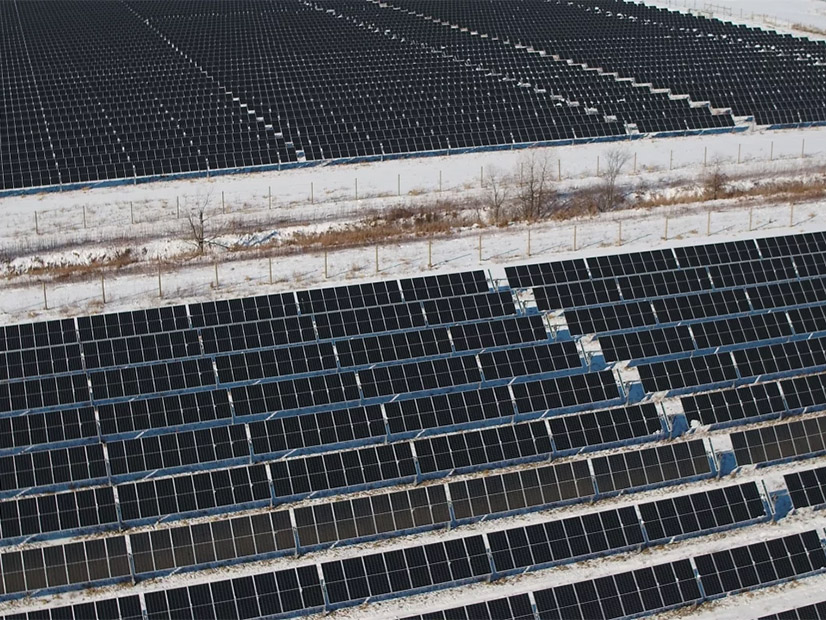
LANSING, Mich. — Michigan’s Public Service Commission would oversee siting of major renewable energy projects under a package of legislation introduced in the state’s House of Representatives, which immediately drew praise from supporters and outrage from opponents.
The bills were introduced Oct. 10 after weeks of anticipation and referred to the House Energy, Communications and Technology Committee. (See Mich. Senate Passes First Renewable Bill; Talks on Package Continue.)
HB 5120 and companion bill HB 5121 would preempt local zoning and give the PSC authority for siting of wind, solar and energy storage facilities of 100 MW or more. HB 5122 and HB 5123 are identical except that they would apply to solar energy storage facilities between 50 and 100 MW. No hearing has been set on the legislation at this time.
An official with the Michigan Townships Association (MTA) immediately blasted the legislation as an “authoritarian” attempt to force small, rural areas to accept large energy facilities and bar local voter referendums on the projects.
“Yes, renewable energy facilities can be contentious in some communities. But the answer is not — and is never — to silence the voices of the impacted residents and communities,” said Neil Sheridan, executive director of the association.
Also opposing the package is the Michigan Farm Bureau, which has said the legislation could harm Michigan’s agriculture industry, as well as the Michigan Association of Planning and the Southeast Michigan Council of Governments (SEMCOG). SEMCOG represents all the city and county governments in Michigan’s largest population area, including Detroit and Wayne, Oakland and Macomb Counties (though those entities also have their own lobbyists).
Not taking a position on the bills thus far are two other significant local government interest groups: the Michigan Association of Counties and the Michigan Municipal League. The Municipal League represents the state’s cities and villages, including Grand Rapids and Ann Arbor (the second- and fifth-largest cities in Michigan, respectively), two communities that have been more aggressive in dealing with climate change issues.
The Municipal League also recently supported HB 5028, which would prohibit homeowners’ associations from barring solar panels on houses.
The MTA represents the more than 1,200 townships in the state — ranging from Canton Township in Wayne County, with a population of greater than 90,000, to Pointe Aux Barques Township in Huron County, population 15 — where most of the major disputes about building renewable energy projects have taken place.
Backing the bills is a coalition of industrial groups that work on and for renewable energy, including the Michigan Energy Innovation Business Council and the American Clean Power Association. Erika Kowall, director of Midwestern Affairs for the ACP, said the legislation showed Michigan was “taking a meaningful step to help counter project delays and ensuring that a clean energy future will unlock economic investment and jobs across the state while protecting the environment.”
Peder Mewis with the Clean Grid Alliance said Minnesota and Wisconsin have systems similar to what Michigan is proposing that maintain local oversight on smaller projects while having state oversight on larger projects.
